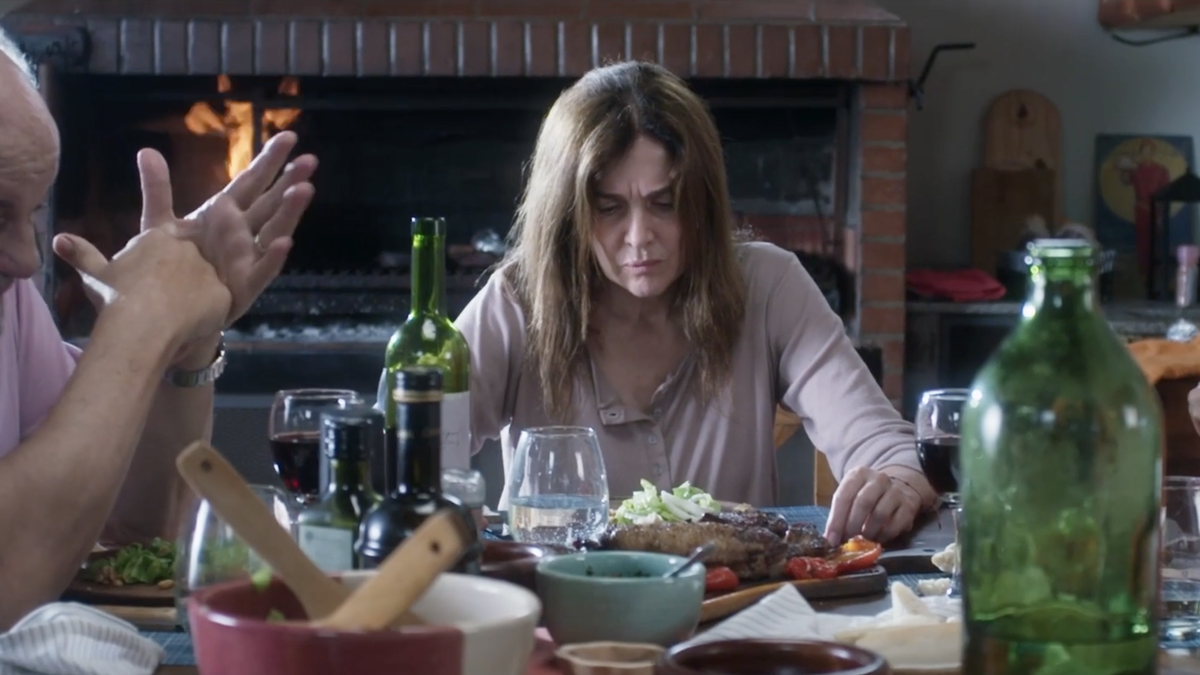“It’s a thriller”define Diego Yaker his new film, “A giraffe on the balcony”starring Andrea Frigerio and Fini Bocchinowhich premiered yesterday. But it is something more: a thriller with a female protagonist and a double background. One, political. The other, more complex, or rather, more human, which should not be revealed. We talked about this and other topics with the director.
Diego Yaker: The film is a thriller, with a typical plot. Within that story, I think there are suggested nuances, for each viewer’s interpretation. At its core, it is a conflictive relationship between mother and daughter. And it is simple, the only thing that survives is love, not just between them. On the other hand, there is the whole “you made a mistake, I corrected the mess you made.”
DY: I was very obsessed with the theme of the traitor, the one broken under torture. We have the image of Rambo, of the one who endures or dies to defend an ideal, or his companions. It is an image. When the moment comes, terror hits you with rawness.
Q: We’ll find out about that at the end. How did the idea of filming this story come about?
DY: A little before the pandemic, I heard about a friend who had been called as a witness in a trial for crimes against humanity. Suddenly, the judge asked him if he wanted to see his file. He didn’t expect it; he had it in his hands and found out how some things really happened, and what some people really did. “There’s a movie here,” I said to myself. Then I started interviewing a lot of people who fought against the dictatorship. Among those people, I found people who had been guerrillas.
Q: Did they speak to you frankly?
DY: This has to do with something that I was quite obsessed with. Within the armed struggle there were dogmatic people who received the order to kill and did not question it. Afterwards they had no guilty conscience, they did not consider that they had committed a crime. And in any case, they were not going to admit it. On the last day I asked a person I interviewed over three days, a friend of Norma Arrostito, “Did you kill anyone?” He looked at me sharply. “I only told that to my daughter,” he replied. Curtly.
Q: And who knows if he told you everything correctly. In one scene, we are reminded of the murder of a kidnapped businessman, as the ERP did with Oberdan Sallustro, general manager of Fiat Concord.
DY: It was not the only case. How does one continue to live after that? In my story I present three ex-combatants who took different paths, but are still friends: the one who entered the political machinery and got a councilor’s position, the one who remains firm in her ideas as she was 50 years ago (it amazes me, they were people of 20 or 25 years willing to die and especially to kill), and the one who remains happily oblivious as if she had never done anything. It was a challenge for the spectator to empathize somewhat with a character who neither recognizes nor examines his share of responsibility.
Q: But you have managed to get a cast of likeable artists who win over the audience: Leyrado, Busnelli, Mimí Ardú, Gallardou, the Spaniards Diana Gómez and Artur Busquets, and especially Andrea Frigerio and her daughter Fini Bocchino playing the different periods of the character. By the way, Frigerio’s performance is remarkable. He leaves beauty aside to better build his character.
DY: She did a great job of construction. She doesn’t wear makeup, she changes her way of walking, of speaking, she looks like a woman ten years older, look at the scene where she is watering the plants. Afterwards, we collaborated a bit, for example in the courtroom scene we put a chair smaller than the judge’s, to highlight her expression of discomfort.
Q: The care taken in defining each place is also noticeable.
DY: Cosmopolitan Barcelona, the dirty Buenos Aires of the 70s and the dirty and noisy one of today, arid La Rioja, dry like her, again with a killer’s soul. Because of the time of year when we were able to film, the colors I wanted to have, the contrast I was looking for, and also because it has a good Provincial Film Law, a Cultural Center, and offers support, we chose La Rioja for the last third. This is not a big budget production but you can see the work of everyone.
Q: And the intention of saying certain things that are unusual in Argentine cinema.
DY: When a Spanish producer saw the proposal, he told me: “It’s time to talk about what has never been talked about.” I think that’s it.
Q: Regarding the scene where a doctor protects the student in the hospital and then comments to a security guard about the risk that she would have made them lose “what we are doing in here.”
DY: My parents were hospital doctors, and they wondered, “What do we do with the young residents? We don’t know what they might be up to, and they don’t know how they might affect our work.” They were all in danger, under suspicion, that was in the air.
Q: And you didn’t want to be a doctor?
DY: I chose film. I was in the first batch of the FUC, then I made a documentary about the Libertad neighborhood in Mar del Plata, my city (it was produced by Pepe Salvia, who now promotes film in Misiones), “Como Mariposas en la Luz,” about a boy who emigrates without contacts to Barcelona and this is how he does (it was produced by Ciancaglini, Torre Nilsson’s famous brother-in-law), and “Pecados,” which was intended to be a good romantic story but one of the production companies went bankrupt halfway through filming, I had to tear out whole pages of the script to finish it and it came out weak (now Filmin has it). This time, with “Una jirafa…”, I was lucky. The Spanish co-producer is quite well-known, it won a Goya with “Chavalas,” it got ten points, and the distributor is Disney, which is now sending it to theaters and later to one of its platforms.
Source: Ambito
I am an author and journalist who has worked in the entertainment industry for over a decade. I currently work as a news editor at a major news website, and my focus is on covering the latest trends in entertainment. I also write occasional pieces for other outlets, and have authored two books about the entertainment industry.




